Alphabetizing Worksheets for Ages 4-6
5 filtered results
-
From - To
Introducing our comprehensive collection of Alphabetizing Worksheets designed specifically for children ages 4-6. Our engaging activities foster essential early literacy skills by teaching young learners to recognize letter sequences and order words alphabetically. The diverse exercises range from fun matching games to selecting appropriate sequences, ensuring that learning remains both effective and enjoyable. Perfect for preschoolers and kindergarteners, these worksheets will greatly enhance your child’s understanding of the alphabet. Cultivate a lifelong love of reading and writing in your child today with our Alphabetizing Worksheets. Visit [Website Name] for more resources to support your child's educational journey.
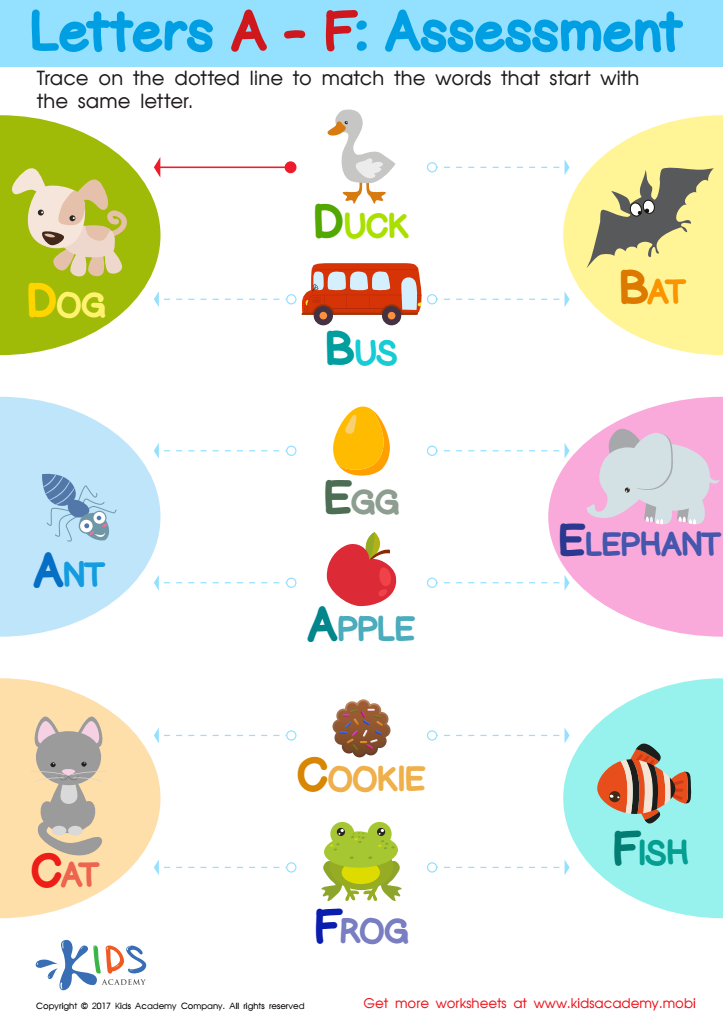

Letters A - F Worksheet
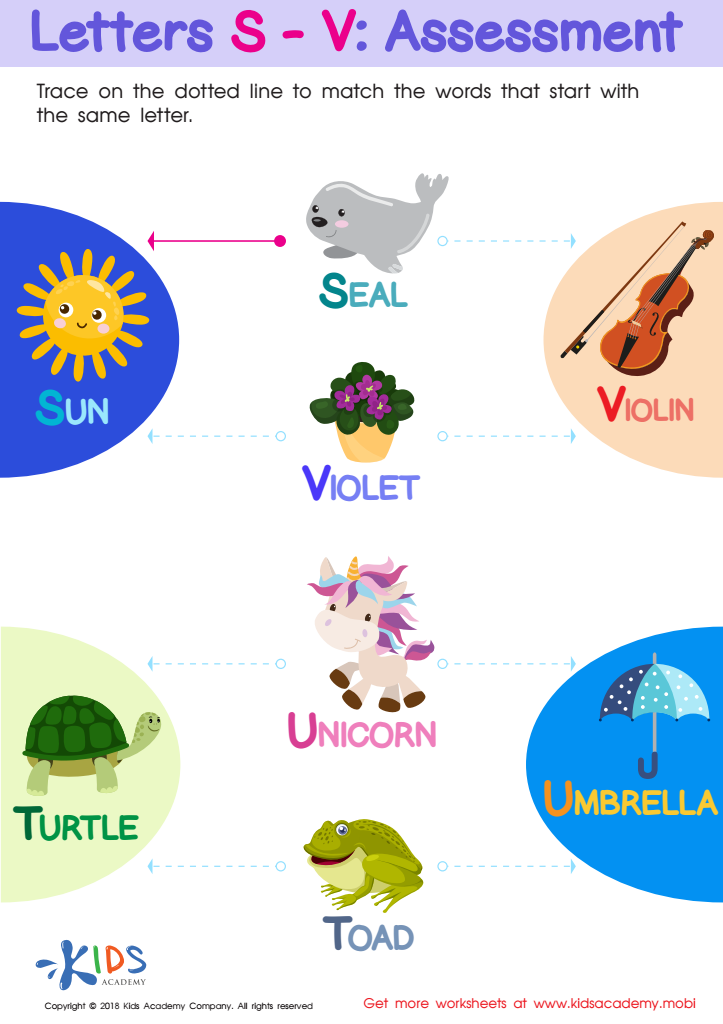

Letters S - V Tracing Worksheet
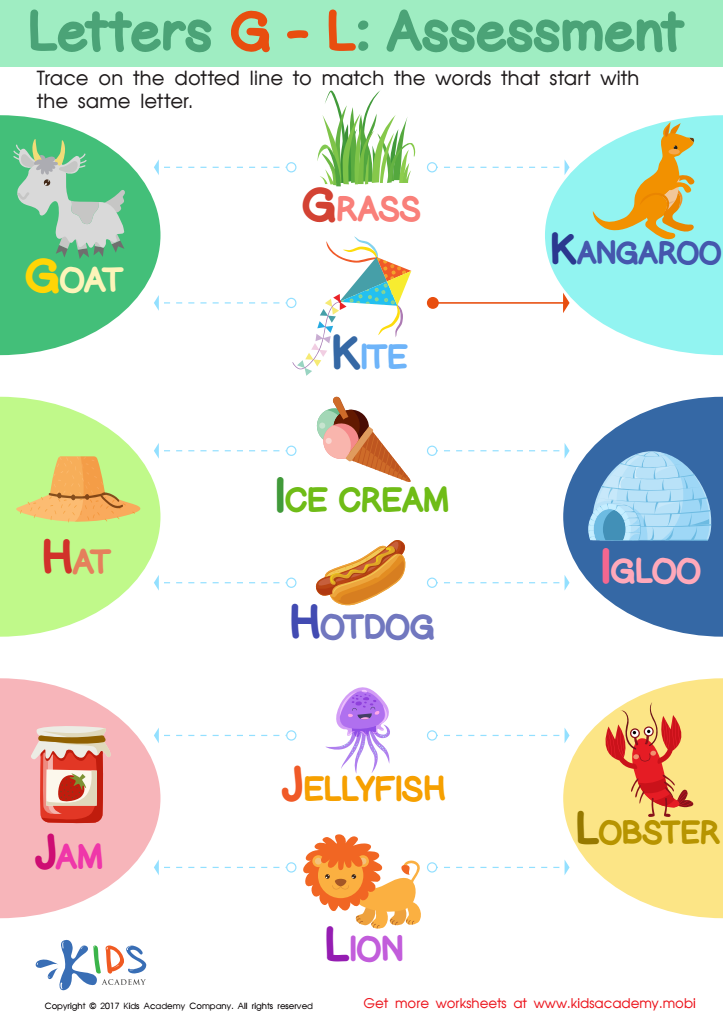

Letters G-L Worksheet
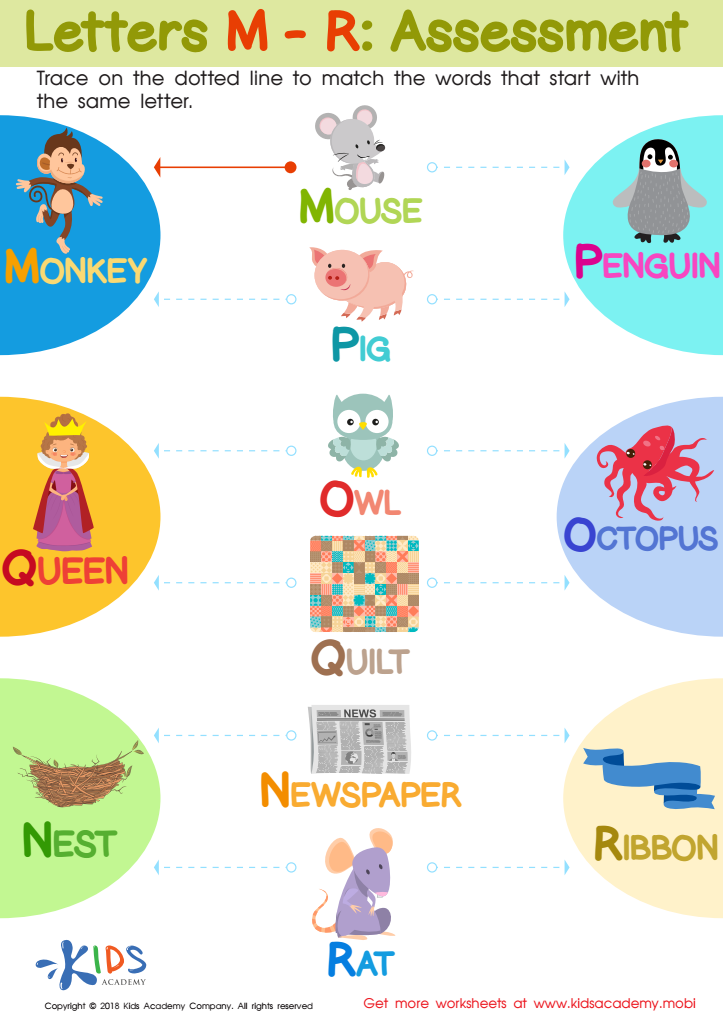

Letters M-R Tracing Worksheet
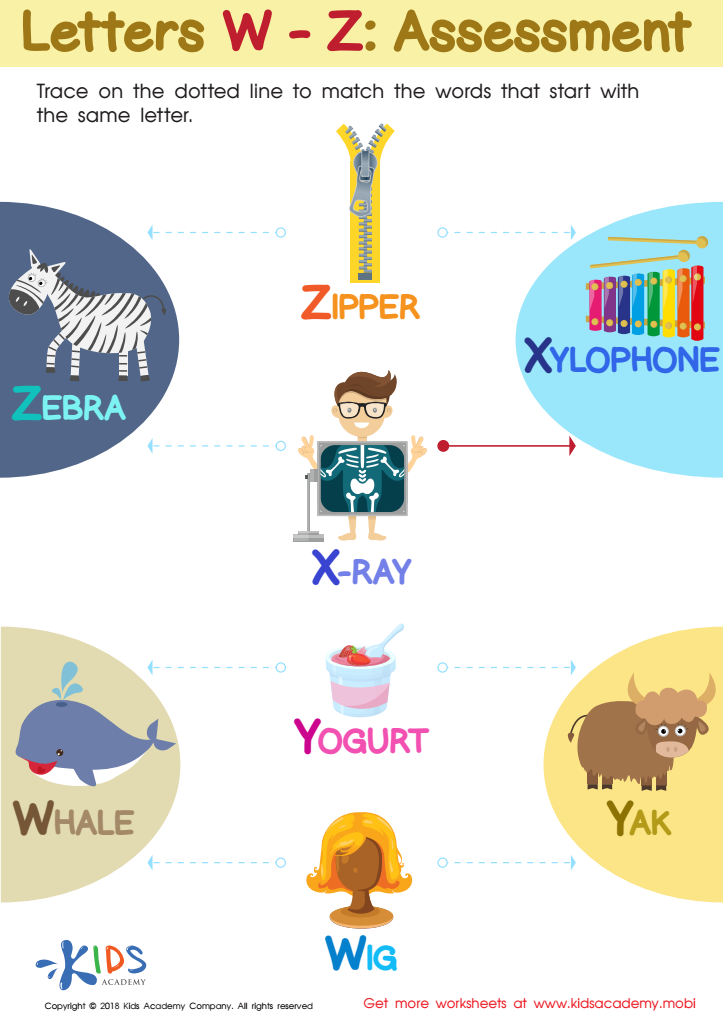

Letters W–Z Tracing Worksheet
Alphabetizing is a foundational skill for young children that can significantly benefit their cognitive and literacy development. For ages 4-6, learning to alphabetize helps with the recognition of letters and their sequence within the alphabet. This practice is vital for early literacy because it improves children's ability to navigate text, dictionaries, and indexes, which are essential skills for reading comprehension and information retrieval.
Parents and teachers should prioritize alphabetizing because it enhances a child’s organizational skills, critical thinking, and attention to detail. Knowing how to alphabetize fosters an understanding of order, which is a fundamental concept in math and science, as well as daily routines. As children learn to automatically recall the order of letters, they also inadvertently develop better memory retention and phonemic awareness, a core aspect of decoding words.
Furthermore, early engagement with alphabetizing sets the stage for more complex literacy tasks. It supports vocabulary development through activities such as categorizing words, which bolsters a child's ability to describe, classify, and make connections between concepts. Introducing alphabetizing activities, like singing alphabet songs, arranging flashcards, or playing alphabet games, can be both educational and enjoyable, fostering a lifelong love of learning in children. These early literacy experiences are stepping stones to future academic success.
 Assign to My Students
Assign to My Students








